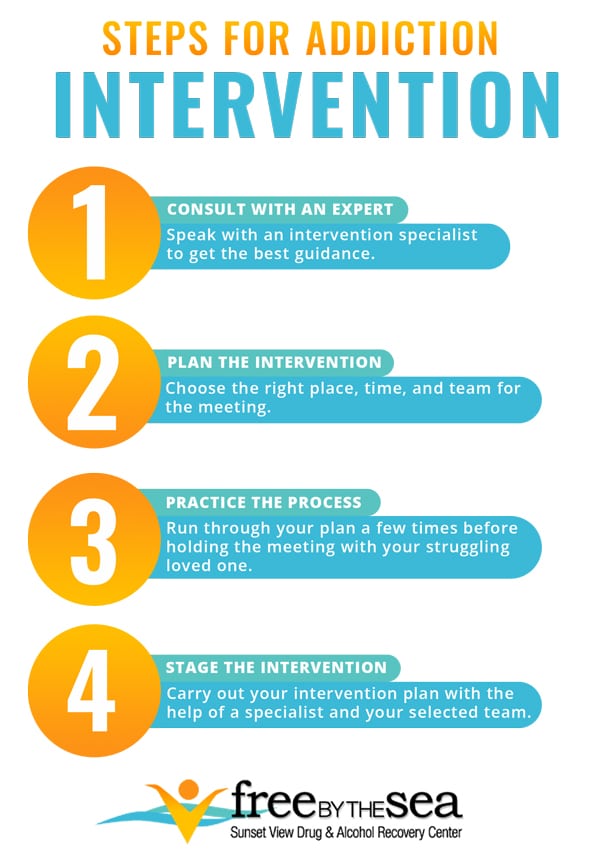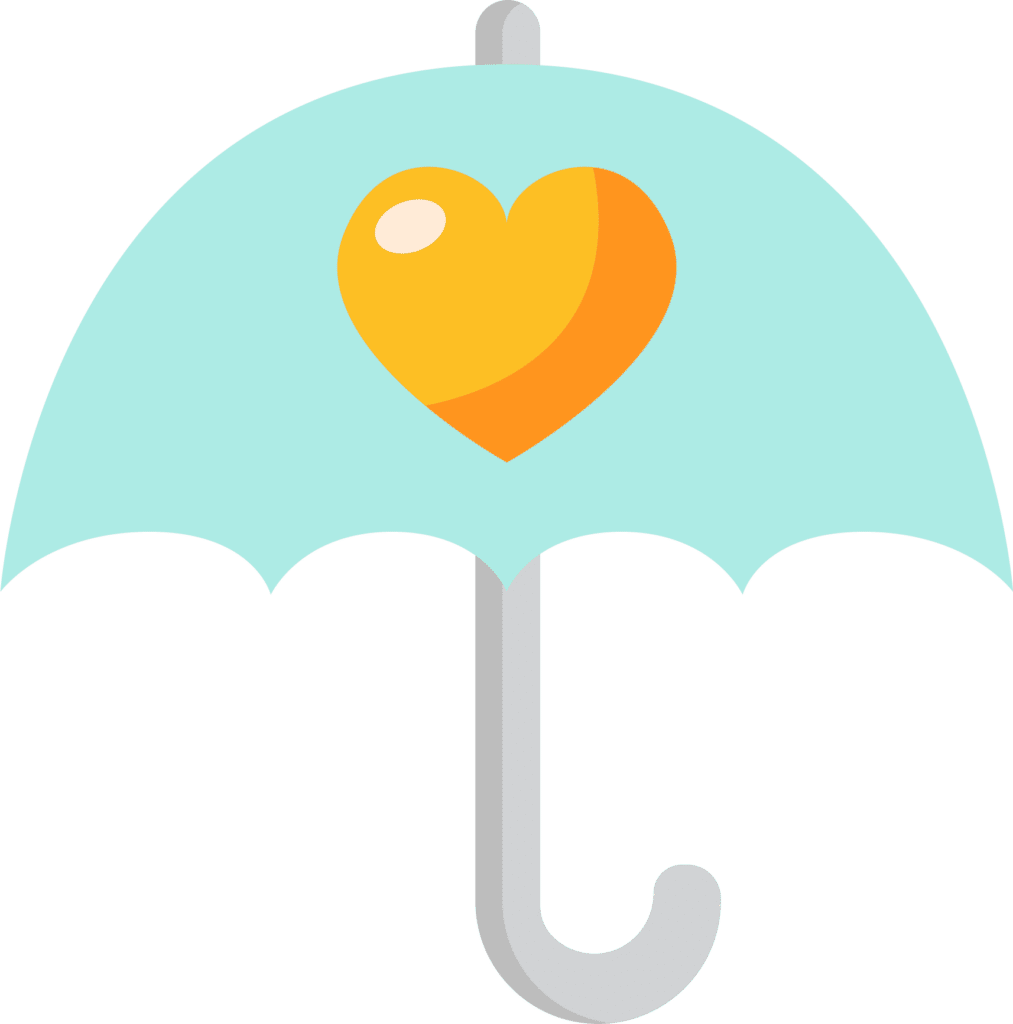 Helping a loved one recognize their addiction can make you feel very powerless. Substance abuse impacts a vast majority of people globally. Although it may be a difficult experience, it is your duty to take action.
Helping a loved one recognize their addiction can make you feel very powerless. Substance abuse impacts a vast majority of people globally. Although it may be a difficult experience, it is your duty to take action.
The fight against substance abuse requires access to numerous resources, including intervention services. While Free By The Sea does not have an intervention specialist on staff, they are committed to helping individuals find the support they need to begin their journey towards recovery. Many men and women in the State of Washington have been prompted to seek treatment after utilizing the drug intervention services offered by Free By The Sea. With a wide range of treatment options available, clients can feel confident that they will receive comprehensive and personalized care.
When drug or alcohol addiction has stolen the hope and joy from your loved one, professional intervention can provide the first ray of hope and lead to an eventual recovery. Discovering treatment centers that suit your needs would be next. Intervention can be a powerful tool to help someone when rehab treatment is the only way to stop the cycle of drug abuse and alcoholism.
At our treatment center in Washington our specialist will work with you to develop the best plan of action towards informing your loved one of the type of help they need for their addiction and what will happen if they don’t seek substance abuse treatment. Professional interventionists may be the solution if you’re unsure of what to do. While Free By The Sea does not have an intervention specialist on staff, they are able to assist clients in finding a qualified professional who can provide the guidance and support they need. Whether it’s through their own network of contacts or by providing referrals to trusted resources, Free By The Sea is committed to helping individuals access the resources they need to achieve lasting recovery.
What is an Intervention?
An intervention is an opportunity for family members to lovingly but firmly confront the addict in a hopeful manner to persuade their loved one to turn to drug or alcohol rehab. In an addiction intervention, family members can share their experiences and focus upon the negative impacts the drug addiction has had upon them and those around them. Drug addiction is recognized as a disease that spreads. Substance abuse does not discriminate, although treatment options make a difference in this everlasting battle.
The process is conducted in an atmosphere of love and support that can help the loved one take the next step on the road to recovery. Often, those living with addiction and alcoholism simply need to know they are loved and supported in their effort to achieve sobriety. Drug abuse manipulates the frame of mind of a recovering person.
In order to achieve the desired results of an intervention, it is important to consult with an intervention specialist before planning the meeting. Our intervention team at our rehab facility is able to go through the process step-by-step to ensure that your loved one has the greatest chance of agreeing to receive help for their addiction. We will be there from start to finish; from guiding the planning of the meeting to checking your loved one into one of our facilities if they accept the offer.
What are the Methods of Intervention?
Drug or alcohol abuse can challenge the foundations of your relationships. Intervention models provide alternatives to tackle substance addiction. Drug intervention services are private and convenient solutions that can involve intervention teams and resources to seek treatment. Be aware that the subject could refuse to accept treatment. There is no one size fits all approach for addiction interventions. Drug Intervention services mold to fit your time of need. It’s best to consult and educate yourself on the benefits of intervention services.
Seeking addiction treatment is a common end goal for drug intervention services. High-quality behavioral healthcare makes a significant difference in a person’s life. For example, outpatient treatment is a flexible solution for someone who wishes to participate in a treatment program. Intervention services serve as the entry for these treatment programs.
The Simple Intervention
A simple intervention is a private and convenient solution to encourage addiction treatment. This intimate approach guides the addicted person to overcome addiction. The simple intervention is a direct way to discuss treatment. A recovering person’s life may come with various obstacles such as mental illness or in combination with substance abuse (co-occurring disorders).
The Crisis Intervention
This model is often used for severe cases, where an intervention team guides those in the case of a medical emergency. This provides an opportunity for rendering medical advice, especially if the person has a mental health disorder. The adverse consequences of substance abuse demand intervention services. For severe cases, a professional interventionist could enrich the experience with additional support.
The Classical Intervention
A classical intervention could be classified as a formal intervention. A formal intervention aims to discuss treatment programs without the subject present. A professional interventionist is usually there to shepherd the process. Professional interventionists are there to provide support to the family members during this formal intervention.
The Family System Intervention
Family members play an integral role in the addiction recovery process. The entire family presents their case to the struggling individual. Family members can encourage a loved one to seek treatment. In the Family System Intervention method, family members will delegate how the subject’s drug or alcohol abuse affected them.
Family interventions can bring up uncomfortable interactions and traumatic memories. It’s important to note that a family drug intervention can greatly affect the nature of your relationships. Years of substance abuse and codependency unravel in a family drug intervention.
Addiction intervention may drum up language that does not embrace empathy. The family intervention highlights the importance of a support system for an effective intervention. Family therapy sessions are a common practice in the behavioral health industry.
What is the Purpose of Drug Use Intervention Services?

What are the Responsibilities of Intervention Professionals?
An intervention professional commonly has a bachelor’s degree, with some holding a master’s degree in social sciences. Drug Intervention services will have different requirements. The responsibilities of an intervention specialist can include:
- Crafting individual specialized development plans for drug intervention
- Instructing parents how to work with the child or adult struggling with substance abuse
- Working with children one-on-one for drug intervention
An intervention professional uses specific metrics to measure the quality of your progress. An intervention team serves as the backbone for substance abuse. A professional interventionist could be trained to specialize in children or young adults struggling with substance abuse. Since each case of substance abuse is different, there are treatment programs that target different specialties such as men, women, and teenage rehab.
Some people, especially young adults, may not recognize that they have a problem or why a drug intervention program is necessary. Substance abuse, if left untreated, can be potentially fatal. Addiction intervention programs provide a coat of armor to change these behaviors.
Does Your Loved One Need an Intervention?
Before planning an addiction intervention, it is important to acknowledge there is even a problem happening in the first place. Signs of addiction can be very easy or very hard to spot. Drug dependence is a tell-tale sign.
We have compiled a list of things to look for when you believe something just isn’t right with the way your loved one has been acting, and some of the signs we believe indicate a substance addiction are:
- Fatigue
- Denial of addiction
- Extreme mood swings
- Loss of control of actions
- Irritability over the smallest issues
- Problem focusing on conversations
- Bloodshot eyes from substance use or lack of sleep
- Slurred speech and impaired physical coordination
- Aggressive or violent behavior
For example, alcohol addiction can introduce withdrawal symptoms to a person struggling. Alcohol abuse can be tough to spot considering how socially accepted it is. Consequently, alcoholism and drug dependence go hand in hand (known as polydrug use).
Alcohol and drug addiction increase the chances of health complications within an addicted person. It all depends on how the certain person is reacting to the substance they are abusing. Seeking addiction treatment could feel like a mountain to climb for an addicted person. Behavioral treatment facilities enhance the recovering person’s chances of survival.
If you believe that your loved one is exhibiting multiple signs of addiction like the ones above, you should strongly consider planning an intervention. With prolonged substance abuse, the longer they wait to receive treatment, the higher the chance that something could go wrong. An intervention could be the thing that ends up saving their life in the long run.
Step-by-Step Intervention Help
Step 1: Consulting with an expert.
At Free By The Sea, we have a team of intervention resources available 24/7 to address any questions or concerns you may have about planning an effective intervention for your loved one. We understand that this process can be overwhelming, which is why we offer our services to help plan every detail alongside you. Our staff members can assist in the setup of the intervention, increasing the likelihood of success. Additionally, if professional interventionists are needed, we can refer you to qualified individuals who can provide the necessary guidance and support throughout the process.
Step 2: Planning the intervention.
It is important to plan even the smallest details when deciding to stage an intervention. Gather information about the certain type of substance that is being abused, collect stories and advice from family members about how the addiction has affected them, and arrange a time and place in advance for the intervention to take place.
Planning ahead ensures you can educate the addicted person. If you have recruited other family members to help with the planning, assign a task to each person so the process can be completed more efficiently.
Step 3: Practicing with family and friends.
Practicing how the intervention is going to go before the day of the set meeting will allow for a smoother process. Gather a small amount of family and close friends that you believe will make the biggest impact on the affected individual’s decision. A successful intervention relies on many different factors.
Have them practice speaking about how their loved one’s addiction has affected them, so they will know what to say on the day of. By allowing a practice version of the intervention to take place, there will be no surprises when conducting the actual meeting.
Step 4: Staging the addiction intervention.
On the day of the addiction intervention, make sure everyone who is going to be present at the meeting is there before the addicted individual. Don’t allow your loved one to know this is going to happen because that will allow them to back down from attending the meeting.
Make sure they are sober from any substances the day of the meeting so that they have the best chance of remembering what was talked about with everyone. During the intervention, set boundaries for your loved one but also show them that they will not be alone on their road to recovery if they choose to receive treatment. This can be marked as a successful intervention.
When is an Intervention Helpful?

- You are angry and frustrated at the negative impact of addiction upon your family.
- You require assistance in rallying your family to fight the addiction.
- You’re at a loss in knowing how to handle the addict’s constant denial.
- Your emotional involvement leads to confusion, blocking a reasonable response.
- You find yourself feeling hopeless that things can get better.
- At times, you convince yourself the problem will take care of itself.
- You need good information regarding a treatment center and different options.
- The chaos caused by the addiction is overwhelming to you.
People who are addicted to drugs or alcohol can be so lost in their addiction they cannot recognize that they need professional help to enjoy a healthy, fulfilling life. Addiction intervention services grant you the educational tools to make informed decisions. Drug intervention encompasses a team effort to drive the best-case scenario for you or a loved one.
It can be devastating to watch a loved one’s refusal to accept treatment. Our caring and professional staff at Free by the Sea can help your loved one finally face their addiction in a nurturing environment and begin the process of healing and recovery.
Why Choose Free by the Sea?
We have 77 treatment beds available for patients to occupy. In our facilities’ certified substance abuse counselors, including licensed mental health therapists are there to help every step of the way. We provide you with high-quality evidence-based addiction treatment, that includes addictions like heroin abuse, dual-diagnosis, and gambling addictions.
Our specialists use DBT, CBT, EMDR, and trauma-informed treatment to address the underlying issues that may have caused the addiction. These include, but are not limited to, possible depression, anxiety, self-esteem, and relationship issues.
Once our staff has determined the root cause of your addiction, you will be enrolled in relapse prevention therapies, relearn basic life skills, and participate in addiction education provided in groups and individual sessions. Our group sessions will include twelve-step meetings that immerse you into our community of individuals that are also going through similar situations. This will give you a support system within our facilities to lean on while you are completing treatment.
We offer many levels of care: residential, partial hospitalization, and intensive outpatient. Our campus is one of the most peaceful locations you’ll find, boasting a safe setting on five acres facing the Pacific Ocean. The fear of seeking addiction treatment will blind you.
We have built multi-sport areas that include volleyball and basketball courts and an exercise room to encourage our patients to remain active and develop healthy lifestyles in between therapy sessions and treatments. We also offer nutritionally designed meals to restore patient’s internal health while they are here at this quality
Free by the Sea is Here to Help
Intervention is often the trigger people living with addiction need to motivate them to seek treatment. Intervention professionals are guardians to lean on in these confusing times. Through an open and honest dialogue about the effects of addiction, families demonstrate the love, support, and hope they have for their loved ones.
If you or your family are interested in an intervention for a loved one, or if you have questions about our services, please contact us. Our admissions specialist are always available to help. Choosing an intervention for your loved one can be a difficult choice. If you know someone who is living with addiction or alcoholism, please feel free to call us for more information. We are located in the beautiful State of Washington. Treatment facilities offer a buffet of therapeutic options.
Free by the Sea is nationally recognized for offering dual-diagnosis, professional treatment options, successful rehabilitation, and addiction treatments individually personalized for men and women of all ages. Contact us today to schedule your treatment.

Dr. Richard Crabbe joined our team in 2019 as our psychiatrist and medical director. He attended the University of Ghana Medical School where he became a Medical Doctor in 1977. From 1978 through 1984, he was a medical officer in the Ghana Navy and provided a variety of services from general medicine to surgeries. He received his Certificate in General Psychology from the American Board of Psychology and Neurology in 2002.


